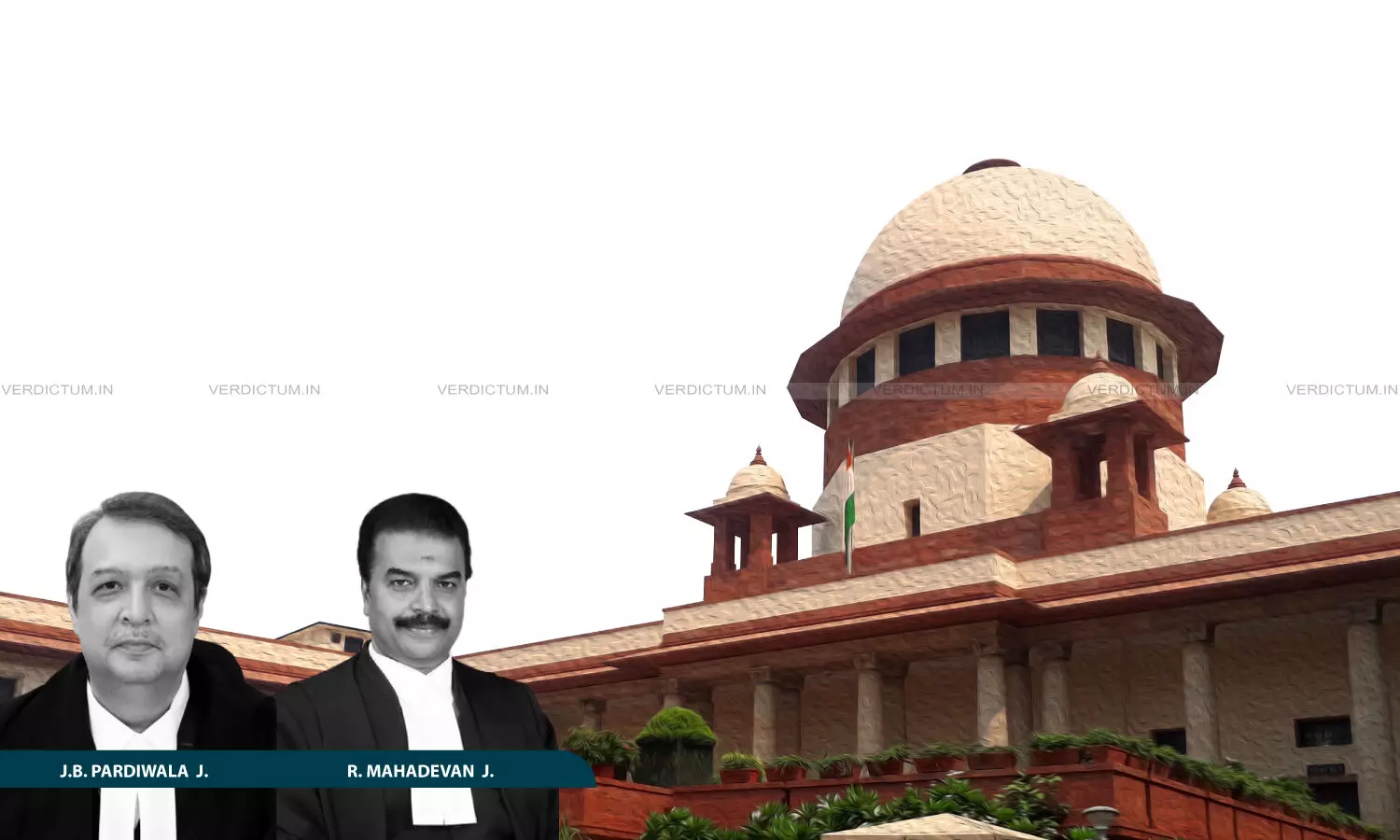
Justice J.B. Pardiwala, Justice R. Mahadevan, Supreme Court
If Court Is Satisfied Of Applicant’s Non-Compliance With Order 39 Rule 3 Proviso Of CPC, Ex-Parte Ad Interim Injunction Can Be Vacated: Supreme Court
 |
|The petition before the Supreme Court arose from an order setting aside the order passed by the Civil Judge(Senior Division) granting ex-parte injunction.
The Supreme Court has recently ruled that if the Court is satisfied of non-compliance by the applicant with the provisions contained in the proviso to Rule 3 of Order 39 CPC, then, on being so satisfied, the Court can simply vacate the ex-parte order without expressing any opinion on the merits of the case.
The petition before the Apex Court arose from an order passed by the Allahabad High Court by which the petition filed by the respondents (original defendants) came to be allowed, thereby setting aside the order passed by the Civil Judge (Senior Division) granting ex-parte injunction as prayed for by the petitioner.
The Division Bench of Justice J.B. Pardiwala and Justice R. Mahadevan said, “We are of the opinion that if the court is satisfied of noncompliance by the applicant with the provisions contained in the proviso then on being so satisfied the court which was persuaded to grant an ex parte ad interim injunction confiding in the applicant that having been shown indulgence by the court he would comply with the requirements of the proviso, it would simply vacate the ex parte order of injunction without expressing any opinion of the merits of the case leaving it open to the parties to have a hearing on the grant or otherwise on the order of injunction but bipartite only. The applicant would be told that by his conduct he has deprived the opponent of an opportunity of having an early or urgent hearing on merits and, therefore, the ex parte order of injunction cannot be allowed to operate any more.”
Factual Background
The respondents (original defendants), being dissatisfied with the order passed by the Trial Court, invoked the supervisory jurisdiction of the High Court under Article 227 of the Constitution and challenged the same. The High Court, in exercise of its supervisory jurisdiction under Article 227 of the Constitution, thought fit to interfere with the order passed by the Trial Court and set aside the same.
Reasoning
Referring to Order 39, CPC, the Bench explained that ordinarily an order of injunction may not be granted ex parte. The opposite party must be issued a notice and heard before an injunction may be granted. Rule 3 carves out an exception in favor of granting an injunction without notice to the opposite party where it appears that the object of granting an injunction would be defeated by the delay.
The Bench further mentioned that conferment of this privilege on the party seeking an injunction is accompanied by an obligation cast on the court to record reasons for its opinion and an obligation cast on the applicant to comply with the requirements of Clauses (a) and (b) of the proviso. As per the Bench, both provisions are mandatory, and the applicant gets an injunction without notice, but subject to the condition of complying with Clauses (a) and (b).
The Bench also referred to the judgment in Shiv Kumar Chadha v. MCD (1993), wherein it was observed that the requirement for recording the reasons for the grant of an ex parte injunction cannot be held to be a mere formality. The party which invokes the jurisdiction of the court for the grant of an order of restraint against a party, without allowing him to be heard, must satisfy the court about the gravity of the situation, and the court has to consider briefly these factors in the ex parte order.
The Bench thus observed that if the court is satisfied of noncompliance by the applicant with the provisions contained in the proviso then it can simply vacate the ex parte order of injunction, leaving it open to the parties to have a hearing on the grant or otherwise on the order of injunction, but bipartite only.
However, considering the fact that the Trial Court was to hear both parties insofar as the prayer of the plaintiff for the grant of an appropriate injunction was concerned, the Bench refused to interfere with the impugned order. “The Trial Court shall hear the plaintiff and defendants and decide the injunction application filed by the plaintiff on its own merits in accordance with law, without being influenced in any manner by any of the observations made by the High Court in its impugned order”, it ordered.
Cause Title: Time City Infrastructure and Housing Limited Lucknow v. The State of U.P. & Ors. (Neutral Citation: 2025 INSC 966)